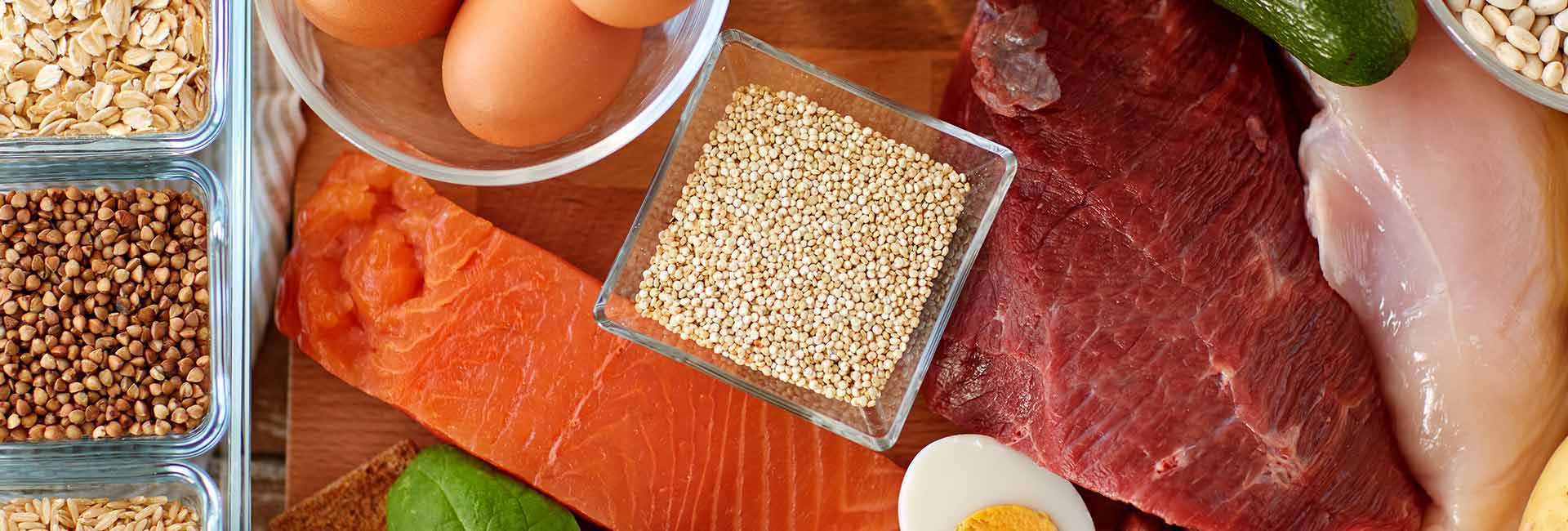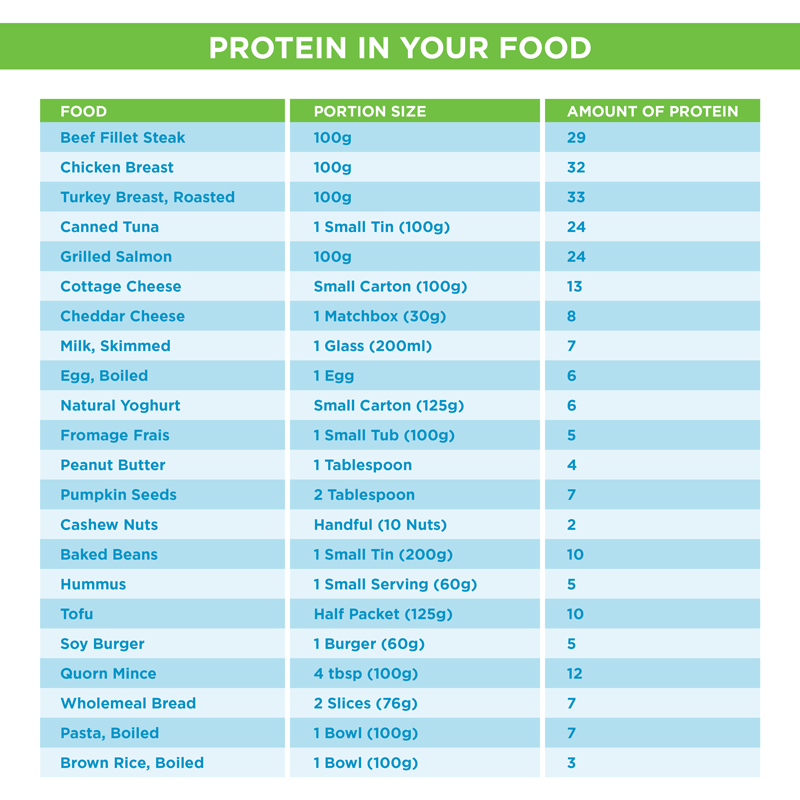

We get protein mainly from animal products like meat, fish, egg and dairy and smaller amounts from plant based foods, like tofu, temph, beans, legumes and vegetables. Unlike fats and carbohydrates, the body is unable to store energy from protein. What is not used by the body is processed through the kidneys and expelled. This is good news for those looking to reach or maintain a healthy weight range.
Did you know that up to a third of 20-40 year old women don’t meet their recommended daily intake (RDI) for protein? So how much is enough. This depends on your stage of life and your activity level. The recommended RDI for sedentary adults is approximately 0.8 grams per kilogram of body weight (or ideal body weight if on a weight loss program).
For an average 65kg woman, the recommended daily intake would be 52 grams of protein. These requirements increase to 1.0g/kg body weight during pregnancy and 1.1g/kg body weight while breast feeding. The elderly and those recovering from injuries have slightly higher protein requirements than the general adult population. Burns and cancer patients require the highest protein intake of around 2g/kg body mass.
Assuming that you get some regular exercise, your protein requirements will be slightly higher than those of a sedentary person. Studies have shown that endurance athletes require 1.2-1.4 grams of protein per kilogram of body mass and for strength athletes, anywhere from 1.4-2.0g/kg body mass is required.
A good rule of thumb is to get approximately 15% of daily energy requirements from protein sources. For someone consuming 6000kJ/day total energy, their energy from protein sources alone will be approximately 900kJ (or 53 grams of protein as 1 gram of protein = 17kJ).
Contrary to some beliefs, there is no evidence to support the notion that high protein consumption has any adverse effects on a normal, healthy body. However, protein restriction is often observed by those with kidney problems or compromised kidney function. Should you suspect any kidney issue, you should talk with your doctor before consuming greater than the RDI for protein or embarking on any weight loss program.
Those who are looking to lose weight should aim to increase the protein in their diet. This serves a number of purposes. Protein is a high satiety macronutrient; that is, it helps keep the feeling of fullness after consuming it. This is because you take longer to digest protein than carbohydrates, helping you feel fuller for longer. From a weight loss perspective, increasing protein will help reduce hunger and cravings and reduce the urge to grab a carbohydrate rich snack. For those following a low carbohydrate eating plan, protein will help to preserve lean muscle mass ensuring that muscle is not broken down. This maintains a good metabolism in order to maximise the body’s ability to burn excess energy. When on a low carbohydrate eating plan, ensure you consume between 15-30% of your daily energy requirements from protein sources.
Whether you are an omnivore, vegetarian or vegan, there are plenty of food varieties to tickle your fancy and provide you with adequate protein. For omnivores the obvious choices are meat, chicken and fish as these flesh foods are approximately 1/3 protein. For vegetarians, dairy products and eggs are often protein staples in the fridge. Vegans (who do not consume any animal products) have to rely on plant based sources of protein and there are many. Soya products like tempeh and tofu, beans and legumes are amongst the richest plant-based protein sources for vegans. Other good sources are nuts and seeds and cereals like quinoa and amaranth.
So what would the daily protein intake look like for a 70kg moderately active person? Let’s say their protein requirements were 1.2 grams per kilogram of body weight and that they are within their health weight range.
 {.lazy}
{.lazy}
Their daily protein consumption would be approximately 84 grams. The following table shows what they would consume over the course of the day to ensure they meet their requirements. Remember that they would also get an additional small amount of protein from other vegetables too.
Getting extra protein into your daily diet isn’t too hard. Grab a small handful of almonds, sprinkle some LSA (linseed, sunflower seed & almond) mix onto cereal or porridge or throw in a scoop of protein powder into your morning smoothie, easy peasy!